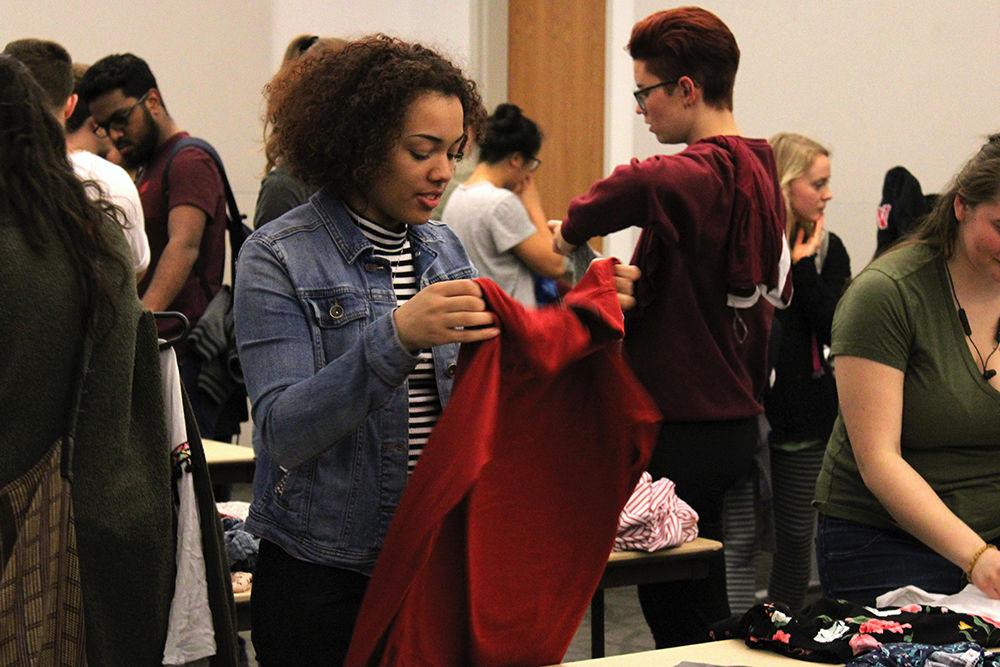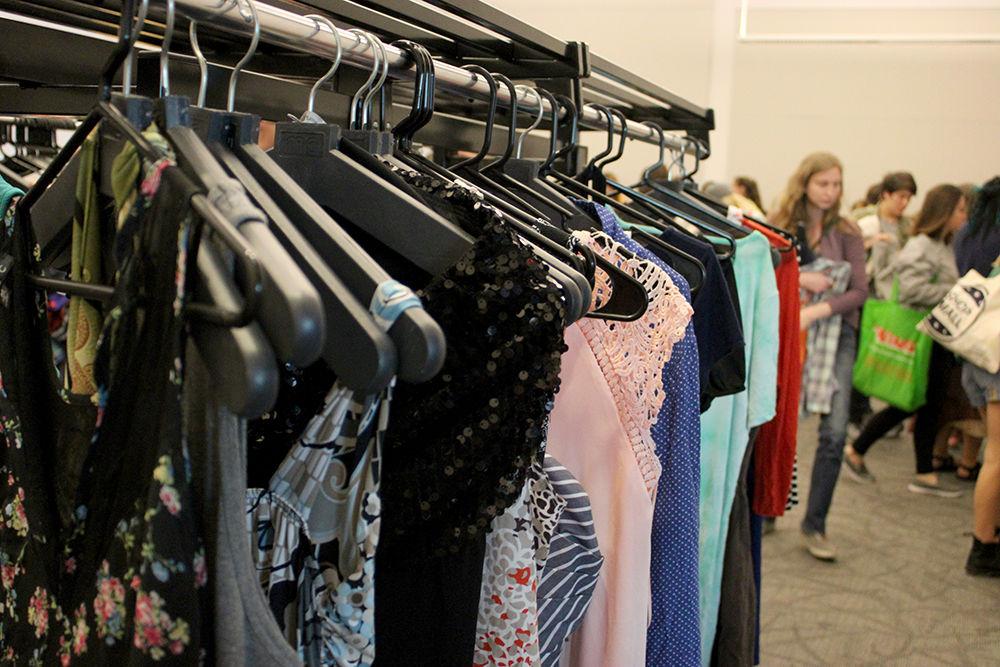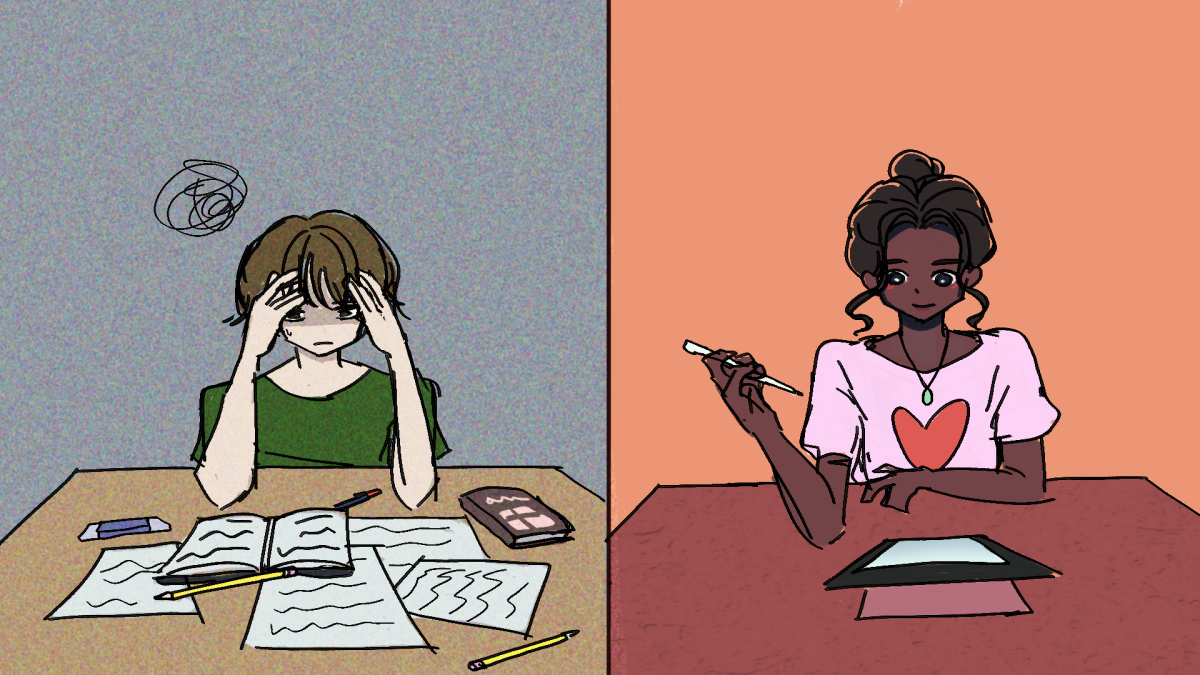According to Secondary Materials and Recycled Textiles, the average U.S. citizen discards 81 pounds of textiles a year. In reaction to this growing trend, sustainable fashion has become an increasingly popular way to fight overconsumption.
The swap event was started in the fall of 2017 after Michelle Kerstein, a *third-year studying fashion and textile management and one of the organizers from the Greater Good Textile Group, was inspired by a discussion of alternative consumption in one of her classes. With the help of her mentor Delisia Matthews, an assistant professor of textiles, apparel, and technology, Kerstein planned the first swap. The Greater Good Textile Group works to spread awareness of sustainable textile practices and promote the ethical treatment of textile workers. This year, they partnered with Zero Waste Wolves to host the Swap.
The swap is centered around the philosophy of living more sustainably. Sarah Austin, a first-year studying political science and member of Zero Waste Wolves, was also one of the coordinators of the event. The Zero Waste Wolves group focuses on facilitating the conversation about sustainable lifestyle changes and working to apply eco-friendly practices in different projects across campus.
“I think a common misconception about the zero-waste lifestyle is that you have to produce absolutely zero waste,” Austin said. “I think the name is something that’s supposed to start conversations and it’s more so just focused on avoiding plastics, reducing your waste overall, and educating people.”
The goal of the Zero Waste Wolves is to start education about textile waste through clothing swaps.
“What a lot of people don’t know is that tons and tons of clothing waste goes to the landfill every year and even clothing that is donated quite often will go to the landfill,” Austin said. “So the overall goal for the Zero Waste Wolves is to take these textiles and repurpose them and things that aren’t chosen or swapped will be used…by the College of Textiles in future projects.”
On Friday March 22, students lined up on the third floor of Talley Student Union to donate unwanted clothing. The organizers of the Swap wanted it to feel like shopping for new items, rather than just exchanging clothes. Kerstein spoke about the process of setting up the swap and creating an inviting atmosphere.
“We set it up like a little boutique, where we hang up dresses and skirts and try to fold things nicely so it’s enjoyable to be a part of,” Kerstein said. “We play some music so it has that kind of store atmosphere. Then when the swap starts, people can come in and talk, exchange ideas about style and just have a good time shopping without buying new things and having to pay for them.”
One major issue that both groups are trying to combat with the Spring Clothing Swap is the rise of fast fashion. Austin explained some of the reasons that fast fashion is unsustainable.
“The thing that… we want to talk about is closing the loop when it comes to fast fashion. What this means is instead of creating and creating for different seasons that we have, we want to focus on shopping sustainably and shopping for what you need. You can borrow people’s clothes or donating or repurposing. That’s what the Zero Waste Wolves want to focus on is being able to use those products in different ways and not having the life cycle of a product be over after one use.”
Both Austin and Kerstein believe that one way to combat textile waste is to think outside the box when it comes to the items already in your wardrobe.
“I wear scarves as tops sometimes” Austin said. “Or you can wear dresses as shirts. Just being able to expand your wardrobe with things you already have is important.”
The swap provided a fun environment for students to put the ideals of zero waste into practice.
“It’s about stopping as much waste as we can and reducing consumption,” Kerstein said. “Instead of revamping your wardrobe for the spring and summer with new or fast fashion items, come and find joy in other people’s clothing that they may not love anymore.”
The ultimate goal of the Spring Clothing Swap was to bring in students who may not know much about zero waste and sustainable fashion and start the dialogue. Starting a zero waste lifestyle is a simple as changing the way you shop.
“I think [the most interesting part is] just seeing how it’s grown and how many more people are interested in sustainable fashion,” Kerstein said. “It’s becoming more of a trend which is really great to hear. I plan on working to make the textile industry more sustainable and to see consumer interest grow, and seeing who comes to events like these and who is excited about participating in them is really refreshing and exciting.”
*Editor’s Note: This article was updated with the correct academic year for Michelle Kerstein.
The Wilson College of Textiles hosted their annual Spring Clothing Swap in Talley Student Union on Friday, March 22. The swap allowed students to find unique pieces by swapping in their clothing items and promoted sustainable textile practices.








